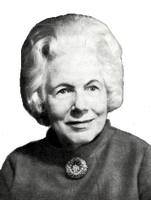
|
The Society of Folk Dance Historians (SFDH)
Three Kinds of Teachers:
[
Home |
About |
Encyclopedia | CLICK AN IMAGE TO ENLARGE |

|
BACKGROUND
There's not a state in the Union where folk songs, dances, legends, and other folklore of the inherited kinds are not passing. A new way of life is sounding the death knell in spite of the widespread interest in the newly learned, standardized folk dances and songs recently taken from books.
Those who look beneath the surface can see the influence of three kinds of present-day teachers. All are important, but we believe that one is more important then the other two as far as the future is concerned. These three kinds of teachers are:
THE "PURIST"
The "purist" believes that the traditional expressions should not be touched unless it is possible to present them in their original state – what he considers the "genuinely authentic form." The purist is valuable to the cause because he is the balance wheel. While seldom does a festival measure up to his standards, it comes nearer because his kind exists. He helps to set a goal for which to reach.
THE "FOR FUN ONLY"
The "for-fun-only" singers and dancers are those who have no regard for folk expression except to meet the immediate need for fun. Often, this kind of teacher has no qualms whatever about changing folk dances or songs. The majority of this class usually has not inherited any kind of traditional legacy, and has no special knowledge of the past or potential future value of any phase of folklore. However, if the present "for-fun-only" dancers from coast to coast do no more than lighten the load and relieve the tension felt today, they have served a real purpose – we need them.
THE "MIDDLE-GROUND"
The "middle-ground" teacher, who finds the most real and lasting satisfaction by following the traditional in form, substance, and spirit, allowing for the inevitable changes that unconsciously come about to help make traditional expressions better meet the needs of the present. They know that folk traditions have never remained static and realize that, unless a folk song or dance has certain characteristics, it has no right to be classified as folk. Unless it is genuine, it is not likely to last; it will go the way of all fads. We need these teachers most of all.
DOCUMENT
- Sarah Gertrude Knott, an article.
As appearing in Northern Junket, Vol. 5, No. 1, March 1955.
This page © 2018 by Ron Houston.
Please do not copy any part of this page without including this copyright notice.
Please do not copy small portions out of context.
Please do not copy large portions without permission from Ron Houston.